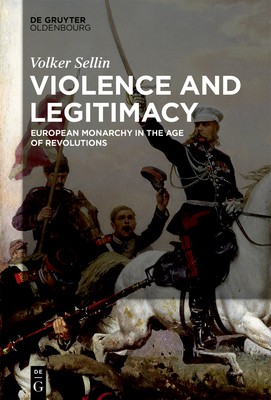
- We will send in 10–14 business days.
- Author: Volker Sellin
- Publisher: Walter de Gruyter
- Year: 2017
- Pages: 346
- ISBN-10: 3110558394
- ISBN-13: 9783110558395
- Format: 16 x 23.4 x 2.3 cm, hardcover
- Language: English
- SAVE -10% with code: EXTRA
Reviews
Description
Benjamin Constant distinguished two kinds of government: unlawful government based on violence, and legitimate government based on the general will. In Europe monarchy was for over a thousand years considered the natural form of legitimate government. The sources of its legitimacy were the dynastic principle, religion, and the ability to protect against foreign aggression. At the end of the eighteenth century the revolutions in America and France called into question the traditional legitimacy of monarchy, but Volker Sellin shows that in response to this challenge monarchy opened up new sources of legitimacy by concluding alliances with constitutionalism, nationalism, and social reform. In some cases the age of revolution brought on a new type of leader, basing his claim to power on charisma.
EXTRA 10 % discount with code: EXTRA
The promotion ends in 11d.18:57:16
The discount code is valid when purchasing from 10 €. Discounts do not stack.
- Author: Volker Sellin
- Publisher: Walter de Gruyter
- Year: 2017
- Pages: 346
- ISBN-10: 3110558394
- ISBN-13: 9783110558395
- Format: 16 x 23.4 x 2.3 cm, hardcover
- Language: English English
Benjamin Constant distinguished two kinds of government: unlawful government based on violence, and legitimate government based on the general will. In Europe monarchy was for over a thousand years considered the natural form of legitimate government. The sources of its legitimacy were the dynastic principle, religion, and the ability to protect against foreign aggression. At the end of the eighteenth century the revolutions in America and France called into question the traditional legitimacy of monarchy, but Volker Sellin shows that in response to this challenge monarchy opened up new sources of legitimacy by concluding alliances with constitutionalism, nationalism, and social reform. In some cases the age of revolution brought on a new type of leader, basing his claim to power on charisma.


Reviews